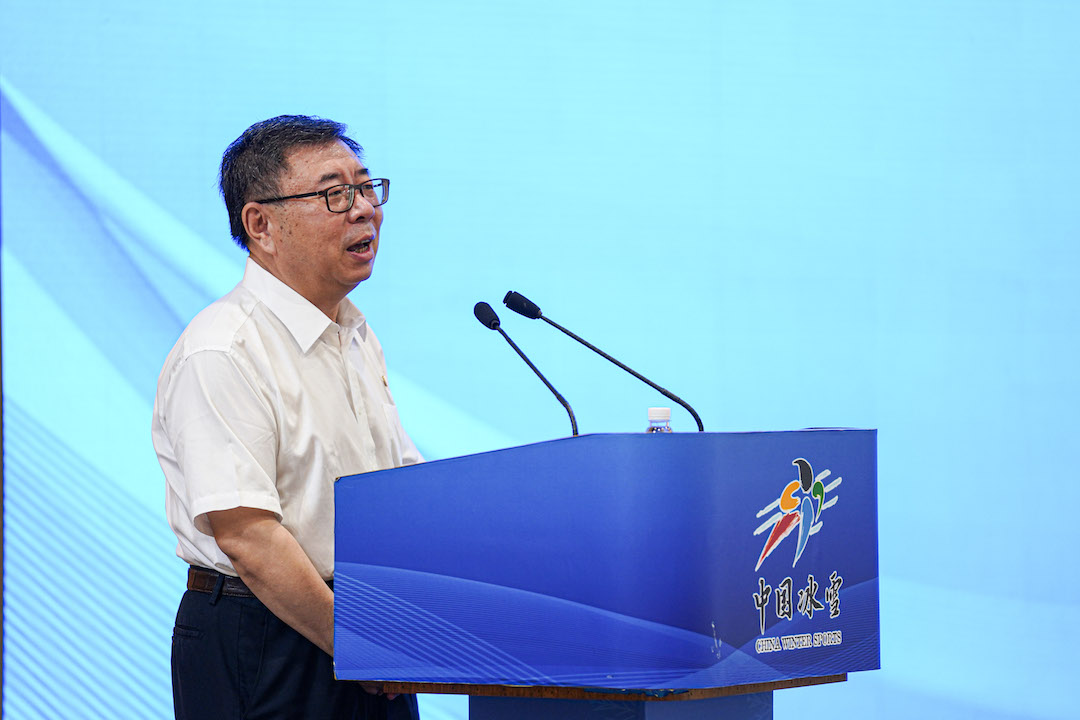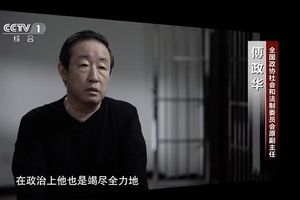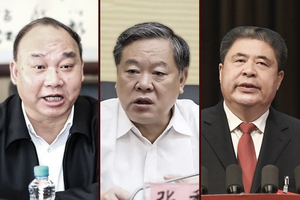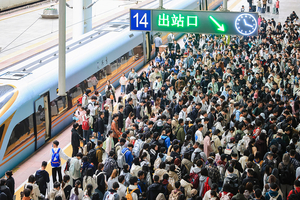China Targets ‘Political Swindlers’ in Anti-Graft Campaign
Listen to the full version

A little less than a decade ago, the phrase “political swindler” began to appear in official accounts of corruption investigations.
At least 16 former government officials and state-owned company executives probed by central or local graft busters in the past decade have been taken in by “political swindlers,” with at least four more cases cropping up this year alone.

Download our app to receive breaking news alerts and read the news on the go.
Get our weekly free Must-Read newsletter.
- DIGEST HUB
- The term "political swindler" refers to fraudsters claiming ties to senior leaders to manipulate officials for cash, particularly during major political reshuffles.
- Key cases involve figures like Ni Huizhong and Fu Zhenghua, with Fu being conned for almost half his career and sentenced to a suspended death sentence for accepting bribes.
- Crackdown efforts led by President Xi Jinping and CCDI chief Li Xi have intensified, with multiple provinces punishing numerous swindlers and political agents.
The term “political swindler” began appearing in official corruption investigations nearly a decade ago [para. 1]. This term refers to individuals who deceive government officials by pretending to have connections with senior leaders, thereby manipulating these officials into paying them money in hopes of securing promotions or avoiding corruption investigations [para. 3][para. 4]. Over the past decade, at least 16 former officials and state-owned company executives have fallen prey to these swindlers, with four new cases surfacing in the current year alone [para. 2].
An analysis of these investigations also noted that such fraudulent activities are particularly rampant during major political reshuffles when many job positions are available [para. 4]. Since last year, following directives from the Communist Party of China (CPC) leadership to curb such fraud, provinces like Liaoning and Jiangxi have taken substantial actions, successfully punishing numerous political swindlers and their agents [para. 5].
One noteworthy case is that of Ni Huizhong, the former head of China’s delegation to the Beijing 2022 Winter Olympic Games, who was expelled from the CPC and public office after being probed for engaging with political swindlers [para. 6]. Another high-profile case involves Fu Zhenghua, a former justice minister, who was exploited by political swindlers for nearly half of his 47-year police career. Fu was deceived by two individuals claiming to have the power to advance his career in return for material benefits. Owing to his obsession with power, Fu fell for this ruse, and his ambition was deemed central to the swindlers' success [para. 8][para. 9]. Fu was found guilty of accepting over 117 million yuan ($16 million) in bribes and received a suspended death sentence in September 2022 [para. 9].
In another instance, Luo Ou, the then-deputy secretary-general of Guangdong province, was defrauded of over 40 million yuan by a businessman asserting ties with a CPC leader who could assist Luo’s promotion. Luo ended up with a life imprisonment sentence for bribery, while the businessman got a 13-year prison term for fraud and bribery [para. 10]. In a different case, a resident of Tianjin presented himself as a "mysterious person" with background connections and managed to deceive numerous high-ranking officials in the municipality [para. 11]. Similarly, Chu Jinfeng from Hancheng in Shaanxi province was conned by an individual who claimed to know central government officials offering promotion assistance through a facilitation fee [para. 11].
To curb such fraudulent activities, President Xi Jinping stressed the importance of cracking down on these political swindlers during a speech in January 2023. Consequently, CCDI chief Li Xi pledged to severely punish these swindlers and "political agents," individuals who act as intermediaries by trading access to official power for money or other benefits [para. 12][para. 13][para. 14].
The revised CPC internal regulations, effective from January 1, stipulate that anyone associating with political swindlers, even as victims, could face expulsion from the party [para. 14]. Regional authorities in Jiangxi, Yunnan, Liaoning, and Ningxia have launched initiatives aimed at eradicating the conditions that allow such fraud to flourish [para. 15].
- PODCAST
- MOST POPULAR







 Sign in with Google
Sign in with Google
 Sign in with Facebook
Sign in with Facebook
 Sign in with 财新
Sign in with 财新